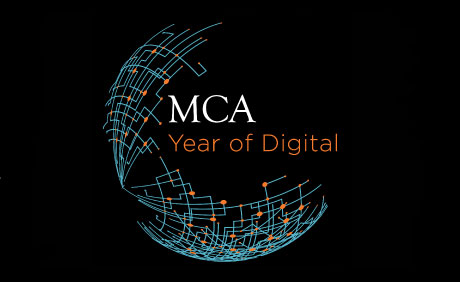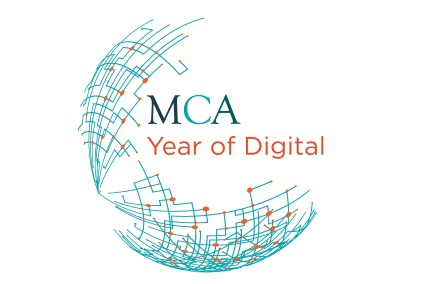The MCA Year of Digital comprised over a dozen events. Member firms produced around fifty think pieces and thought leadership articles. The Year galvanised MCA members. The Young MCA was especially heavily involved, hosting a number of events and providing the challenging perspectives of Digital natives.
So what have we learned?
We started the Year convinced that consulting plays a uniquely valuable role in all aspects of the Digital value chain, translating the radical challenges of social media, Big Data, gamification, the Cloud, mobile, virtual reality and AI, into language business can understand and relate to. The Year strengthened that conviction. The calibre of entries in the MCA Awards Digital category, the scale of innovations that consultants are involved in, the fact that Digital grew again as a share of consulting revenues between 2013 and 2014 (it is now 27%), all support our thesis. Businesses faced with a Digital challenge should consider engaging consultants before buying any new kit. Consultants can relate Digital innovations to business strategies and real issues for business, like the bottom line.
Digital is shortening the business cycle. However, that does not mean that strategy, based in the past on extended bouts of long-term planning and options appraisal, is necessarily dead. Rather, it is being reinvented. Businesses are seeking consulting support to help them mobilise new Digital propositions. But they are keen to understand how these things fit into a coherent vision. That vision will obviously have to be flexible and adaptable. It will need to focus less on detailed planning and more on a firm’s ability to cope with whatever eventualities are thrown at it – its ‘strategic preparedness’. But a vision will still be needed. Indeed our Annual Industry Report 2015 noted the first rise in strategy consulting for some years, as businesses looked to consultants to assist them in understanding the challenges of the ‘new Digital normal’.
The Report also noted that while Digital is driving growth in areas such as retail, energy and financial services, the growth is to some degree ‘anxious’, part of businesses’ frantic efforts to keep up with the demands of digitally empowered consumers. This anxiety is creating demand for strategy advice. But it also raises questions about what the keys to business success will be in a context where the new growth has as many challenges as the retrenchment that preceded it. We will continue to examine these questions throughout our forthcoming Year of Growth.
The pace of Digital also doesn’t mean it’s just a flash in the pan. At the start of the Year, some suggested that the term ‘Digital’ itself might not see out the 12 months. Yet, if anything, usage has become more common in that time. Indeed, several of our Digital experts suggested that while the Digital Revolution is underway, it has also barely begun.
They pointed to the fact that many Digital innovations, especially in areas like retail, had focused to date on customer-facing adaptations. But these had masked the un-digitised reality of internal processes. As more Digital natives enter the workplace, they will demand more modern working practices. And if retail and other customer facing sectors are already deep into Digital, B2B contexts will soon need to follow, with Digital helping manage and secure best value from complex supply chains and relationships.
Furthermore, businesses need to use Digital to reinvent. Prosaically, a business that has introduced an app for online purchases and promises same-day delivery needs to overhaul its logistics and fulfilment operations. At a more elevated level, traditional businesses must recognise that many of the fastest growing enterprises are those that are new and completely Digital in their outlook, culture and operations. Businesses that emerged in the pre-Digital era must match the energy of these new models and recast their existing brand values.
Consultants are certainly being asked to do many new things in the context of Digital, providing support for businesses and public-sector bodies in dealing with the various Digital ‘disruptors’. But Digital is also transforming the business of consulting: how it is done. Analytics are being embedded in many assignments. Some firms are exploring disintermediation, with cheaper self-managed applications being offered instead of expensive human resources. Increasingly sophisticated Digital ERM systems permit consultants to deploy resources for their clients more effectively than before. Internal collaborations, allowing ‘crowdsourcing’ of insights across and enterprise, are also becoming more common.
What the Year of Digital has also made clear is that consulting will need to keep changing – relentlessly. In the past, it has been suggested that consultants’ focus on clients means that they pay less attention to their own internal transformation. This is certainly not true in the case of Digital. Consultants have made a great start in overhauling themselves. But going forward any firm’s ability to advise on Digital, and do so authoritatively and cost effectively, will be in part a function of their own digitisation. Consultants are ahead of the pace. They will need to stay there.
Nowhere is the change in consulting more evident than in its evolving skills profile. There has been a huge rise in Digital consulting activity and in the numbers of people carrying it out. 10 000 consultants work in Digital across MCA firms, more than a quarter of the total. Digital is also driving new recruitment of Digital specialists and a related 46% rise in graduate recruitment. Many consulting business leaders confirm how important they consider getting new skills into consulting and even new ‘types’ of person. By combining new people in teams with more seasoned professionals, such as sector specialists, consulting firms aim to provide clients the Digital challenge they need in terms they can understand. They are also upskilling their existing workforces, sometimes using reverse mentoring to expose longstanding professionals to the skills of younger consultants and new Digital hires. Consultants are thus well placed to advise businesses on how to combine new talents with old – and ensure that they can speak each other’s language.
However, our investigations reveal that Digital skills are both evolving and scarce. Our submission to the House of Lords Enquiry on Digital Skills pointed to Digital’s potential to fuse creative and technical disciplines, often separated in the arts/sciences divide in UK education, in useful new capabilities. At our event on Digital and infrastructure, panellists pointed to the benefits of allying traditional building techniques with Digital modelling and analytics to evolve whole new skills sets. At a more basic level, consultants have indicated that a mix of technical people who can speak business, creatives who can code and coders who can create, would be very valuable.
But whatever new disciplines emerge, they are unlikely to be able to address the basic problem of scarcity. Britain could divert a substantial body of undergraduates towards Digital, digitally equip the economically inactive and operate an open-border policy on Digital skills. But it would still be unlikely that all UK firms needing Digital skills would be able to retain sufficient volume on their books. New models for blending scarce resources with existing teams, through outsourcing, knowledge transfer and pooling across business alliances may be needed. Across the forthcoming Year of Growth, we will investigate these models.
Data emerged as a hot and contentious issue across the Year. As businesses generate more and more business data, so they will need to understand it, deploying analytics to find the insight needle in the data haystack. They will also need to protect it. Cyber security will be a major business challenge in the coming years. Businesses will need to adapt themselves to repel the predations of sophisticated criminals – who have probably in any case already hacked their data.
And who owns data is a matter of controversy. For some contributors to the Digital Year, the current situation cannot continue. People should be given control over the data big businesses and states have gathered on them, so that individuals and not bureaucracies or corporations can exploit the associated value. For others, this is a non-issue. People will be content to hand over data provided they get a good services or products from doing so. What is clear is that data’s value is imperfectly understood. Whether that value should be clarified by governments, through regulation, or by market forces, with businesses responding to increasing consumer agitation, is itself a matter of debate.
One area where government can take a lead is in digitising itself. MCA members are involved in numerous initiatives to support Digital in the public sector. But while the creation of the Government Digital Service and initiatives such as Open Data have been a good start, many MCA members believe that more could be done. Much of the Digital discussion in the public sector still concerns legacy systems or whether an existing transaction or service relationship can replicated online. Important though these matters are, they are hardly transformational. Government should be looking for opportunities to use Digital to recast the relationship between the citizen and the state. These opportunities should be pursued with especial vigour, since they also promote a core government objective: saving money. Digital facilitates self-help. It can support the effective management of enquiries. To take one simple example, a local authority with an app-accessible database on its street scene activities (roads repairs, lighting, street cleansing) would be less likely to face multiple complaints about a pothole – through councillors, MPs, officers, all potentially recorded as different cases – since people looking to report the problem could see if it had already been logged and was scheduled for action.
The MCA’s Year of Digital has been a great success. The Year is now coming to an end. But we are only at the start of the Digital journey for the UK economy – and for management consulting. Digital and consulting’s centrality to it are topics we will return to again and again in the coming years.


